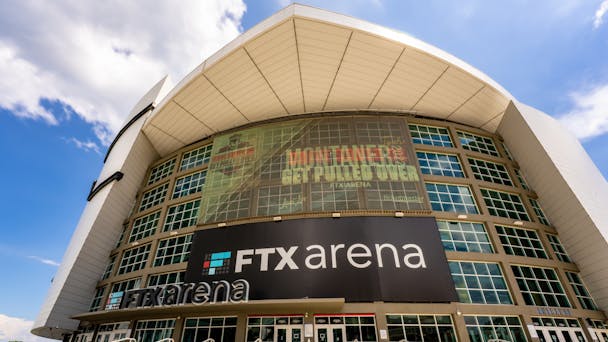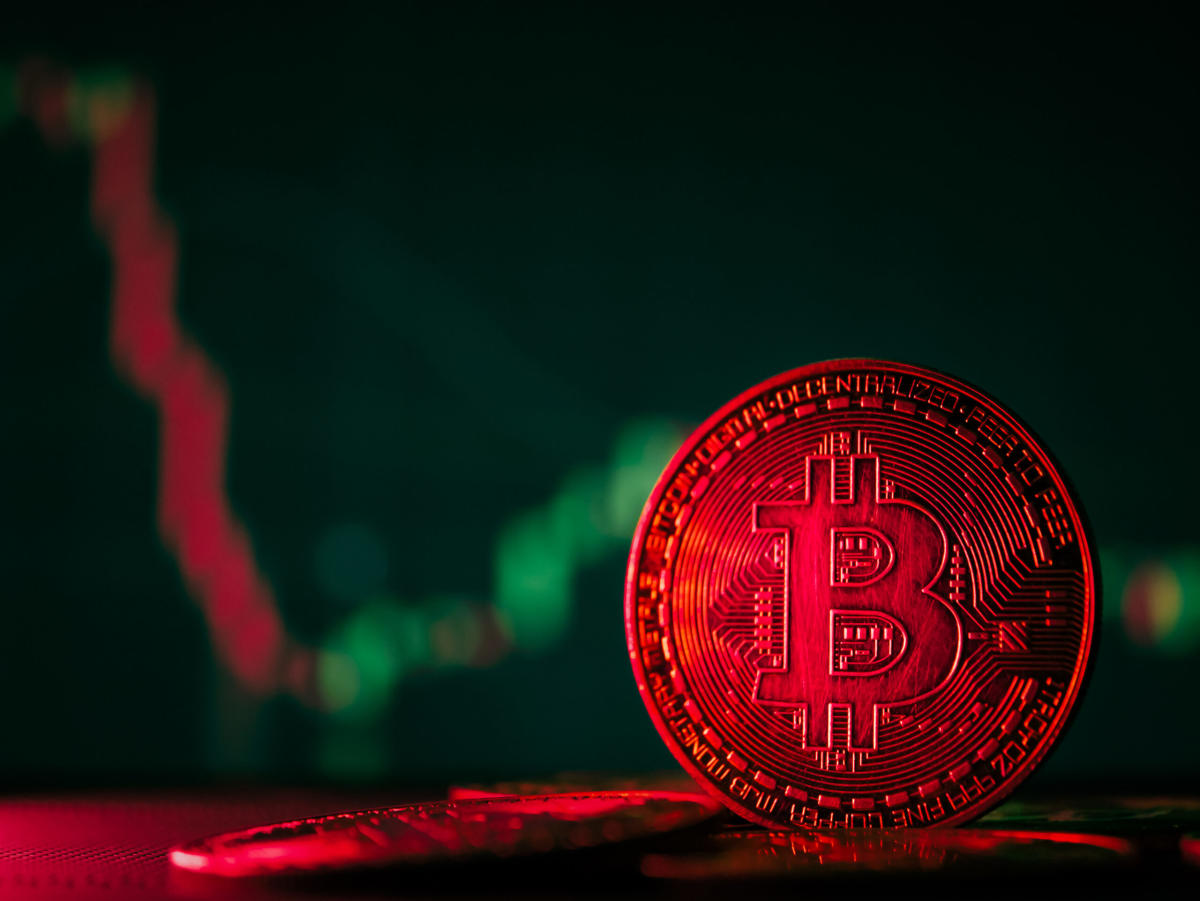Has Crypto Sports Sponsorship Bubble burst?

Last year saw an influx of sports organizations that signed agreements with cryptocurrency exchanges. Now, with the crypto market in crisis, the gold rush mentality has stopped abruptly.
2021 could well be remembered as the year when crypto became mainstream. Bitcoin, the world’s leading cryptocurrency, reached an all-time high of over $ 68,000 in November. In the same month, the total valuation of the crypto market exceeded the staggering figure of three trillion. The future of cryptocurrency looked bright.
In line with success, a number of cryptocurrency companies took out ads – each costing millions of dollars – in the recent Super Bowl. One of them, an FTX ad with Larry David, seemed to suggest that the innovation of crypto was on par, in terms of historical significance, with the wheel and the coffee, and that anyone who was unable to appreciate this in fact, was a clumsy, out-of-touch curmudgeon. A Crypto.com ad featuring Matt Damon encouraged viewers to “embrace the moment and commit” by investing in crypto.

FTX Arena, home of the Miami Heat. (Credit: Adobe Stock)
But it was not just during the Big Game that crypto companies flexed their newfound wealth. A number of them also signed major agreements with prominent sports organizations.
For example:
- In March 2021, the cryptocurrency exchange site FTX signed a $ 135 million deal for the naming rights to the Miami Heat arena, changing its name to FTX Arena.
- In June 2021, Crypto.com became the official sponsor of Formula 1.
- In October, Coinbase became the official cryptocurrency exchange site for the NBA, WNBA and NBA G League (NBA’s minor league).
- In November, at the height of the crypto boom, it was announced that the Staples Center in Los Angeles had been renamed the Crypto.com Arena.
- Also in November, MLB’s 2021 American League MVP Shohei Ohtani was named a brand ambassador – and nicknamed “The Great Cryptohtani” – by FTX.
- In February this year, The Washington Nationals signed a $ 38 million deal with blockchain company Terra, which includes stadium advertising and the construction of the “Terra Club,” described in the press release as a “premier club space.” behind the home plate. “
- In April of this year, the Dallas Cowboys became the first NFL team to enter into an official partnership with a crypto company when it signed a deal – reportedly valued at $ 6.5 billion – with Blockchain.com.
Why the sudden rush from crypto companies to partner with sports devices? For all the same reasons that upcoming brands have always sought to market themselves through the sports world. Namely the massive audience and fan loyalty that brands can take advantage of by associating with a particular league, team or athlete. Sports are mostly the big leagues in marketing. The Super Bowl in particular can help launch a brand from obscurity to superstar status. Landing an ad spot during the Big Game is often not far from being nominated for a top prize in the Cannes Lions.
The latest marketing news and insights straight to your inbox.
Get the most out of The Drum by choosing from a range of great email briefings, whether it’s daily news, weekly summaries or deep dives into media or creativity.
Sign up
In other words, the sports world gave crypto companies the keys they needed to unlock the hearts and minds of the masses. “[Sports deals] Make a big splash in the market, and that’s exactly it [crypto] brands need, says Jim Andrews, founder and CEO of A-Mark Partnership Strategies, a company that specializes in helping brand marketers navigate partnerships. “This is a murky area, and there are still tens of millions of people who do not really understand what crypto is … [these deals] help them build knowledge of their brand names. ”
Then, from the spring of 2022, the sunny sky became darker, and the so-called ‘crypto winter’ set in. Partly driven by rising inflation, many investors began to withdraw from risky crypto investments, which led to the value of causing coins like Bitcoin to plummet. Fortunes were deleted. Many of the celebrity crypto-evangelists became conspicuous and suddenly fell silent. Leading crypto-exchange companies began to lay off many employees.
There are many in the crypto world who insist that the current crash is nothing to worry about. It is par for the course, they will say; just hold on for dear life (HODL) and “buy the dip.” Coinbase even posted an ad, called ‘Long live crypto’, during the NBA Finals in May which mainly argued that it is stupid to stop betting on crypto just because the market is going through a small tough update. On the other hand, there are economic experts who would say that this crash is fundamentally different and more serious than previous recessions.
Time will tell which side is right. If the crypto market backfires, crypto evangelists will be (at least temporarily) justified, and we’ll probably see a series of ads from crypto companies pushing the message, ‘We told you so.’
The world is currently holding its breath and waiting to see what happens to the crypto market. It is absolutely unlikely that any major sports organizations will sign agreements with crypto exchange companies as long as the latter tries to keep their heads above water. “We are not going to see the agreements we saw in 2021 being signed in 2022,” Andrews said.
However, this is not to say that the contracts born last year completely threw caution against the wind. Many of those who oversaw their draft and signing had undoubtedly gone through the bursting of the dot-com bubble, and were therefore aware that a new technology market could suddenly take a turn for the worse. Contingency plans were probably carefully included in the contracts.
But the beef market mentality, which seems to have affected large parts of the sports industry in 2021, will probably now be replaced by a more bearish sobriety. Andrews says that the last few months have given a “sense of reality”, and that “everyone will be a little more careful” in the future. “The eyes were not quite as open last year as they will be this year,” he says.
Brand affiliation is also a double-edged sword. Last year, your team covered an aura of bullish success by naming your sports stadium after an upcoming crypto exchange site. It is definitely less favorable for your sports arena to bear the name of a company that is struggling to survive. “For sports teams, if their stadium is named after a cryptocurrency – a currency that has either failed or has the potential to fail – it reflects on the team itself,” said Brandon Brown, assistant professor of sports management at New York. York University School of Professional Studies.
The aforementioned agreement between the Washington Nationals and Terra provides a particularly shining example of the changing dynamics between the crypto and sports industries. Terra – a blockchain ecosystem that is primarily oriented around the stablecoin TerraUSD – was in some ways the first domino to fall into what eventually became a general implosion of the crypto market. Stablecoins are designed to remain tied to the value of the US dollar, but as of May this year, UST and its sister coin Luna entered – in the language of the stock market – a “death spiral”.
It is not entirely clear at this time what caused TerraUSD to crash, but the crash did, and now the Nationals have ended up in a tough position: they continue to cover their stadium with the Terra logo, thus promoting the company and encouraging fans and visitors to invest in a proven risky cryptocurrency?
Again, it’s too early to tell. But the implementation of the agreement is undoubtedly closely monitored by many players in the crypto and sports industry.
For more, sign up for The Drum’s Inside the Metaverse weekly newsletter here.
























